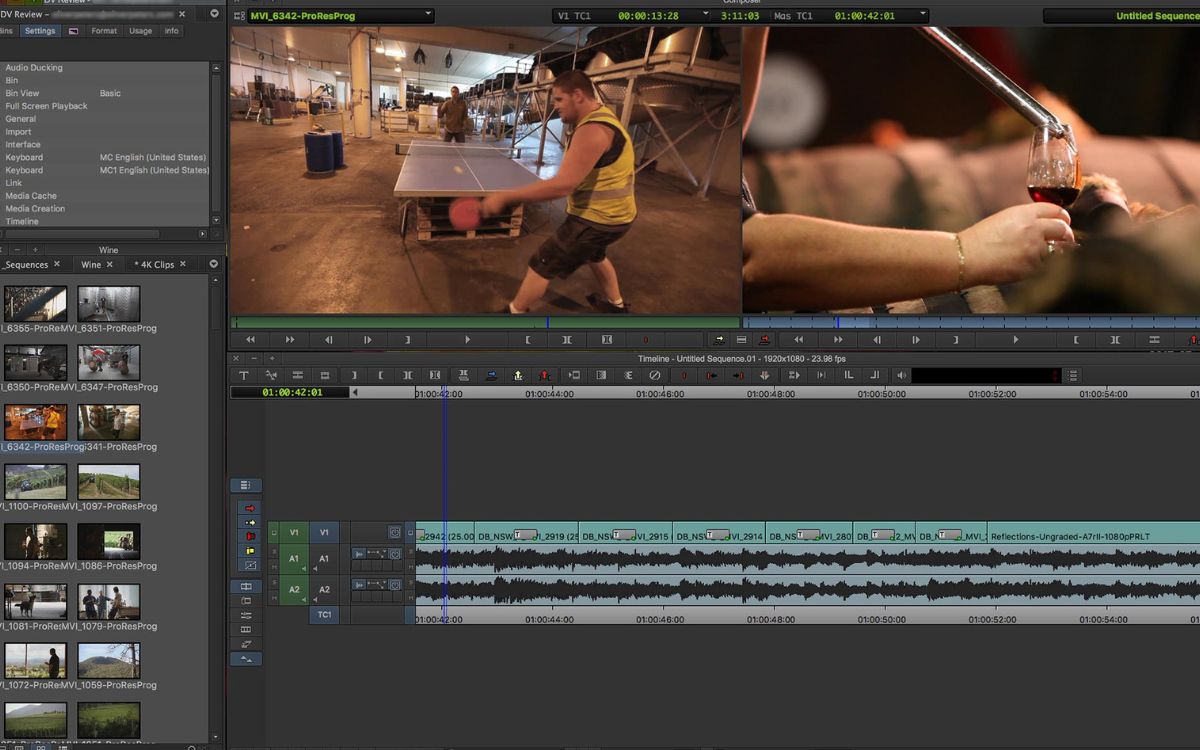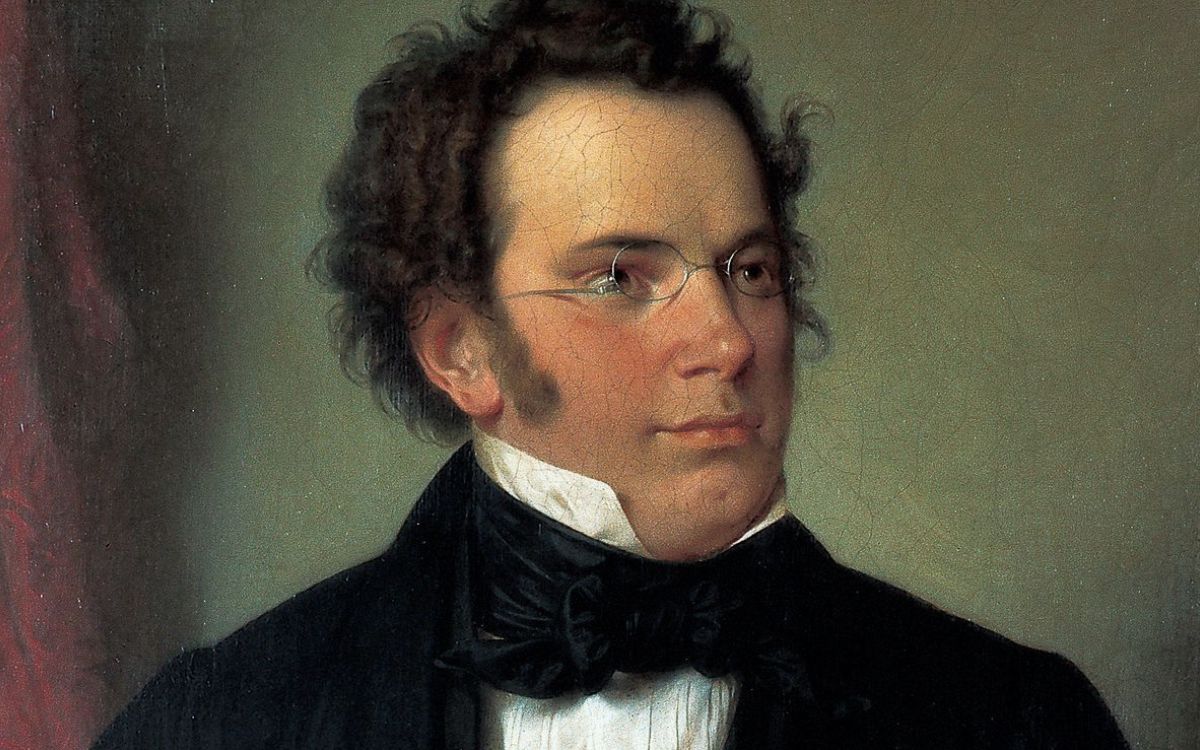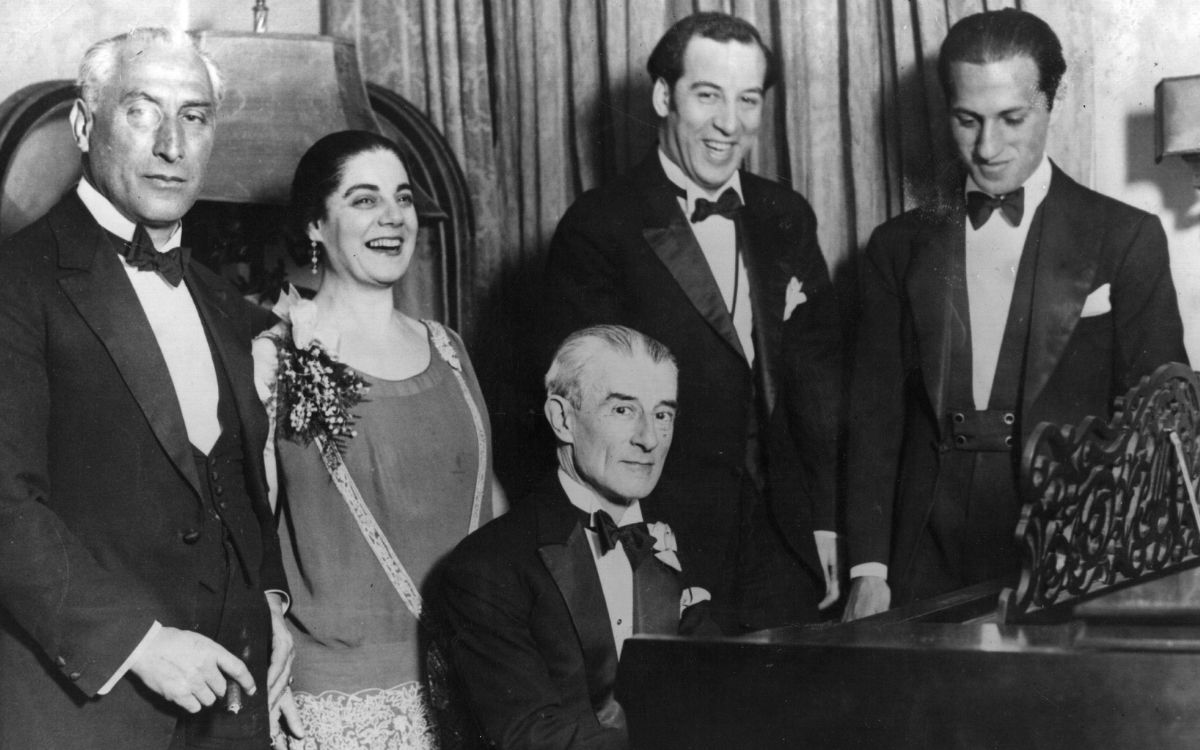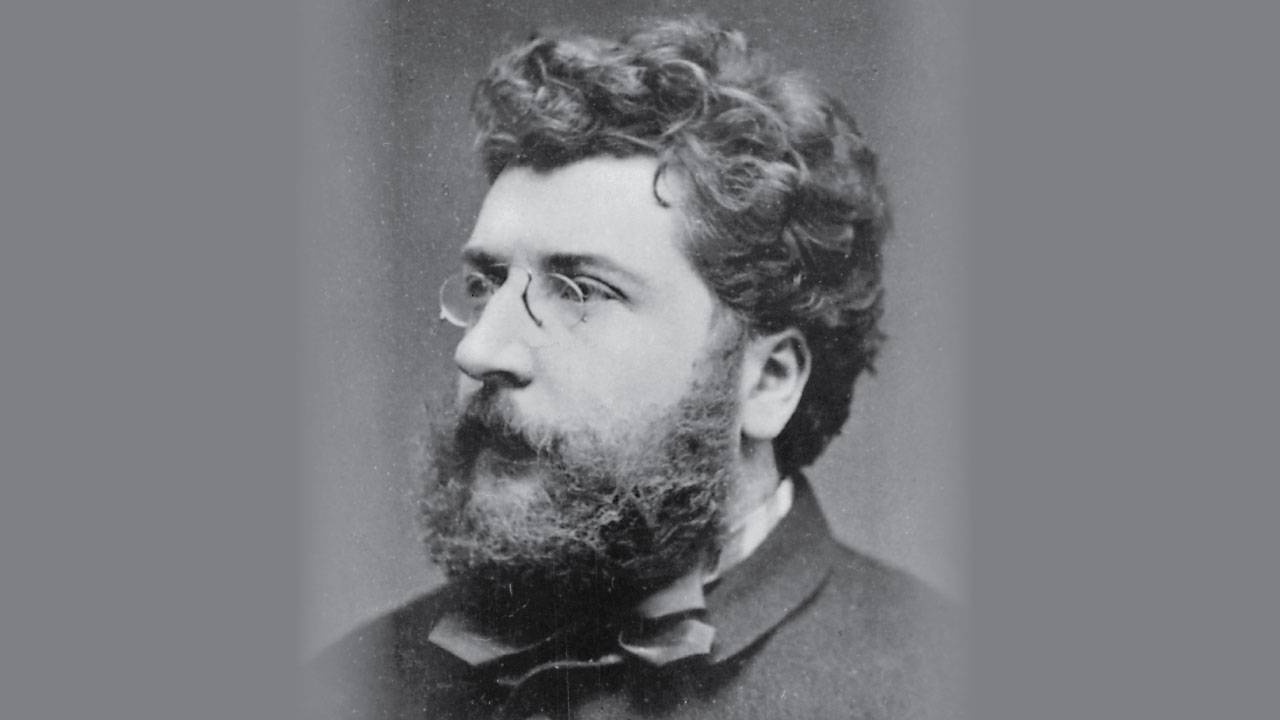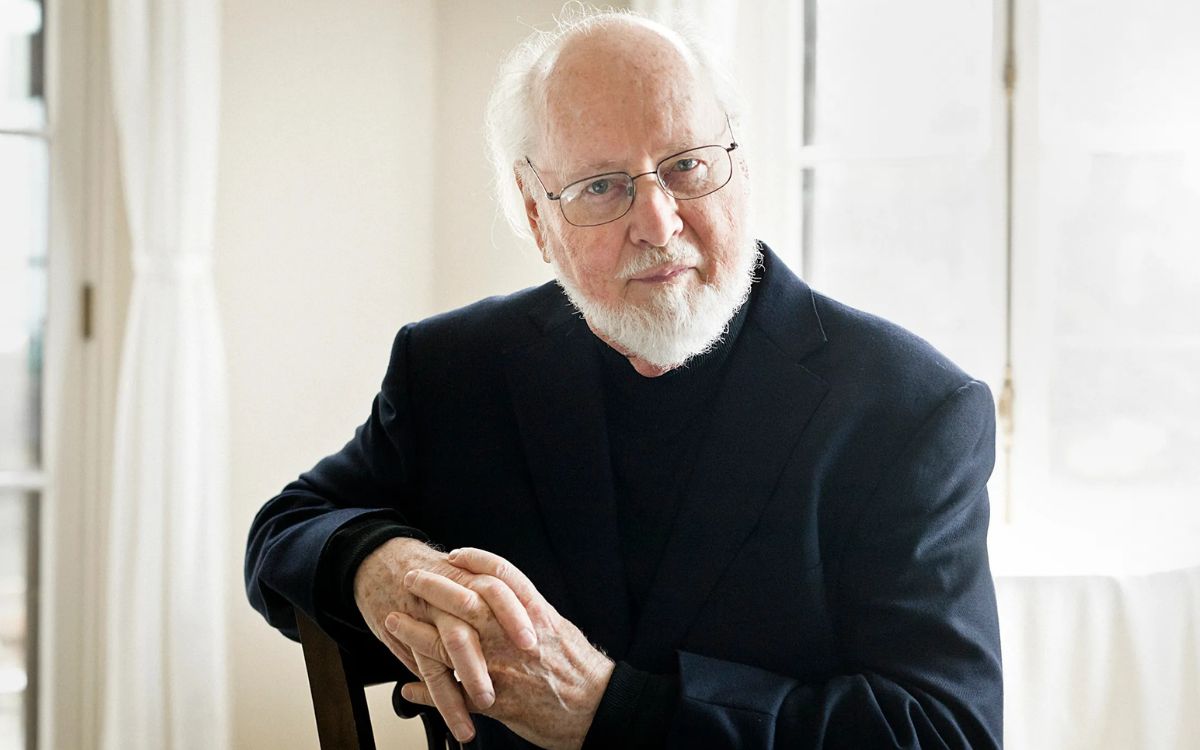Home>Production & Technology>Composer>How To Hire A Composer


Composer
How To Hire A Composer
Modified: January 31, 2024
Learn how to hire a composer for your next project. Find the perfect composer to bring your vision to life. Contact us today to get started.
(Many of the links in this article redirect to a specific reviewed product. Your purchase of these products through affiliate links helps to generate commission for AudioLover.com, at no extra cost. Learn more)
Table of Contents
- Introduction
- Understanding the Role of a Composer
- Determining Your Project’s Musical Needs
- Researching and Finding Potential Composers
- Reviewing Composer Portfolios and Previous Work
- Conducting Interviews with Potential Composers
- Negotiating Rates and Contracts
- Providing Clear Project Guidelines and Expectations
- Collaborating with the Composer Throughout the Project
- Giving Feedback and Revising Musical Pieces
- Finalizing and Delivering the Music
- Conclusion
Introduction
When it comes to creating a captivating and memorable audiovisual experience, the role of a composer cannot be underestimated. Whether you’re working on a film, video game, commercial, or any other creative project, the right musical score can elevate the emotions and enhance the overall impact of your work.
However, finding and hiring the perfect composer for your project can be a daunting task. You want someone who not only has a deep understanding of music composition but also shares your creative vision and can bring it to life. In this article, we will guide you through the process of hiring a composer, from understanding their role to finding the right fit for your project, to collaborating effectively throughout the process.
Before we dive into the specific steps, it’s important to note that the role of a composer goes beyond simply creating music. They are storytellers in their own right, using melodies, harmonies, and rhythms to enhance the narrative and evoke emotions in the audience. A skilled composer can take your project to new heights, making it resonate with viewers and leaving a lasting impression.
Throughout this article, we will provide valuable insights and practical tips for every stage of the hiring process. From determining your project’s musical needs to conducting interviews, negotiating rates, and collaborating effectively, you will gain a solid understanding of what it takes to find and work with a talented composer.
So, whether you’re embarking on a grand cinematic venture or need a catchy jingle for your next commercial, read on to discover how to find and hire the perfect composer for your project. With the right music, your creation will take on a whole new dimension, leaving a lasting impact on your audience.
Understanding the Role of a Composer
Before diving into the process of hiring a composer, it’s essential to have a clear understanding of their role in your project. A composer is an artist who creates original musical compositions to accompany visual media such as films, TV shows, video games, commercials, and more. They play a vital role in setting the mood, enhancing the storytelling, and evoking emotions in the audience.
A composer’s job is not limited to simply writing and producing music. They work closely with directors, producers, and other members of the creative team to understand the project’s vision and objectives. They collaborate to develop a unique musical identity that supports and enhances the story or concept.
In addition to creating a score that fits the project, composers also take into consideration factors such as timing, pacing, and transitions. They work with the visual elements of the project to ensure that the music complements and synchronizes seamlessly with the on-screen action. This requires a keen sense of timing and a deep understanding of how music can enhance the impact of visuals.
Furthermore, composers may need to be proficient in various musical styles and genres, depending on the project’s specific requirements. Whether it’s a sweeping orchestral score, a catchy pop tune, or a haunting electronic soundtrack, composers have the ability to adapt their style and create music that resonates with the project’s intended audience.
It’s important to note that while a composer brings their own artistic style and interpretation to the project, they also need to be receptive to feedback and work collaboratively. They should be open to incorporating suggestions and revisions to ensure that the music aligns seamlessly with the creative vision of the project.
By understanding the multifaceted role of a composer, you can better appreciate the impact their work can have on your project. Their ability to craft melodies, harmonies, and rhythms that enhance the narrative and evoke emotions is what sets them apart as true artists.
Now that we have a clear understanding of the role of a composer, let’s move on to the next step: determining your project’s musical needs.
Determining Your Project’s Musical Needs
Before you begin the process of hiring a composer, it’s crucial to have a clear understanding of your project’s musical needs. The music you choose will play a significant role in conveying the right emotions, setting the tone, and enhancing the overall impact of your project.
Start by assessing the genre and style of your project. Is it a period drama, a futuristic sci-fi, a light-hearted comedy, or an intense action-packed adventure? Each genre has its own musical conventions and characteristics that can greatly influence the mood and atmosphere of your project. Think about the emotions you want to evoke in your audience and how the music can support that.
Consider the specific moments in your project where music will be featured. Are there emotional moments that require a delicate and emotional melody? Are there action sequences that require intense and energetic music? By identifying these key moments, you can communicate your musical needs more effectively to potential composers.
Furthermore, think about the instrumentation you envision for your project. Do you have a preference for a specific set of instruments? Are you looking for a grand orchestral score, a minimalist electronic soundtrack, or something in between? The choice of instruments can greatly influence the overall sound and style of the music, so it’s important to have a clear vision in mind.
Budget is another important consideration when determining your project’s musical needs. The level of complexity and production quality of the music will vary depending on your budget. Be transparent about your financial constraints when discussing with potential composers, as it can help them understand the scope of the project and make appropriate recommendations.
Lastly, consider any specific cultural or regional influences that might be relevant to your project. If your story is set in a specific location or time period, incorporating appropriate musical elements can enhance the authenticity and immersion for the audience.
By taking the time to determine your project’s musical needs, you can provide potential composers with clear and specific guidelines. This will not only help you find the right fit for your project but also ensure that the music aligns with your creative vision and enhances the impact of your work.
Now that you have a clear understanding of your project’s musical needs, the next step is researching and finding potential composers who can bring your vision to life.
Researching and Finding Potential Composers
Once you have a clear understanding of your project’s musical needs, it’s time to start researching and finding potential composers who can bring your creative vision to life. Here are some steps to help you in the process:
- Ask for Recommendations: Reach out to industry colleagues, fellow filmmakers, and professionals who have worked on similar projects in the past. Ask for recommendations of composers they have worked with and trust. Word-of-mouth referrals can be a valuable source of finding talented composers.
- Explore Online Portfolios: Utilize the power of the internet to search for composers who specialize in your project’s genre or style. Browse their websites or online portfolios to listen to their previous work. This will give you a sense of their style, versatility, and the quality of their compositions.
- Check Music Licensing Platforms: Many music licensing platforms such as Soundstripe, Artlist, and Epidemic Sound have a network of composers. Explore these platforms to find composers who offer their work for licensing. This can be a great way to discover new talent and listen to a wide range of music samples.
- Attend Industry Events and Conferences: Industry events and conferences like film festivals, music conferences, and networking events provide an excellent opportunity to meet composers in person. Take advantage of these events to network, connect, and discuss your project with composers who are actively involved in the industry.
- Utilize Online Networking Platforms: Websites and platforms such as LinkedIn, music production forums, and social media groups focused on filmmaking or music composition can be valuable resources. Join relevant groups, engage in conversations, and reach out to composers directly to discuss your project.
When researching and finding potential composers, it’s important to consider factors such as their experience, versatility, and compatibility with your project. Look for composers who have a track record of delivering high-quality work, understanding the specific requirements of different genres, and adapting to various musical styles.
Make sure to review their portfolios, listen to samples of their work, and read reviews or testimonials from past clients to get a better sense of their capabilities. Pay attention to composers who have experience working on projects similar to yours, as it demonstrates their understanding of the specific demands and challenges of your genre.
Once you have a list of potential composers, the next step is to review their portfolios and previous work, which will be covered in the next section.
Reviewing Composer Portfolios and Previous Work
Now that you have found potential composers for your project, it’s time to dive deeper into their portfolios and previous work to assess their suitability and compatibility with your creative vision. Here are some key steps to guide you through the process of reviewing composer portfolios:
- Listen to their Music: Start by listening to samples of their work. Pay attention to the overall quality, composition style, and how well it aligns with your project’s musical needs. Consider the emotions evoked by the music and whether it resonates with the mood and tone you’re aiming for.
- Explore Musical Diversity: Look for composers who demonstrate versatility and the ability to work in different genres and styles. This shows their adaptability and creativity, as they can bring a fresh perspective to your project while still maintaining a strong musical identity.
- Review their Experience: Take into account the composers’ experience in the industry and their relevant credits. Have they worked on similar projects before? Do they have experience collaborating with filmmakers or game developers? This will provide insight into their understanding of the demands and requirements of your specific project.
- Consider Production Value: Assess the production value of their work. Does the music sound professional and well-produced? The quality of the recording, mixing, and mastering is essential to ensure that the music will enhance the overall production value of your project.
- Read Client Testimonials: Look for testimonials or reviews from their past clients. This feedback can give you valuable insights into their professionalism, communication skills, ability to meet deadlines, and overall satisfaction of previous collaborators.
- Consider Collaboration Skills: Assess how well the composer works with other members of the creative team. Collaboration is crucial in ensuring that the music aligns seamlessly with the visual elements of your project. Look for composers who are receptive to feedback and have a collaborative mindset.
- Seek References: If you’re still unsure about a composer’s fit for your project, don’t hesitate to reach out and ask for references. Connect with their past clients to discuss their experience of working with the composer and whether they would recommend them for similar projects.
By thoroughly reviewing composer portfolios and previous work, you can gain a better understanding of their creative style, capabilities, and compatibility with your project. This will help you make an informed decision when selecting the composer who best aligns with your vision and goals.
Once you have reviewed the portfolios and narrowed down your list to a few top contenders, it’s time to proceed to the next step: conducting interviews with potential composers.
Conducting Interviews with Potential Composers
Now that you have reviewed the portfolios of potential composers and narrowed down your options, it’s time to conduct interviews to further assess their suitability and compatibility with your project. The interview process allows you to dive deeper into their creative process, communication style, and how well they understand your project’s musical needs. Here are some key steps to follow when conducting interviews with potential composers:
- Prepare Interview Questions: Take the time to prepare a set of interview questions that cover important aspects such as their experience, creative approach, understanding of your project, and communication style. This will ensure that you cover all the relevant topics during the interview.
- Discuss Creative Vision: Use the interview to discuss your creative vision for the project and see how the composer responds to it. Are they able to grasp your concept and offer insights on how they can enhance it with their music? Look for composers who can bring fresh ideas and a unique perspective while still staying true to your vision.
- Assess Music Knowledge: Gauge the composer’s knowledge of different music genres, styles, and techniques. Are they able to adapt their skills to fit the specific requirements of your project? A knowledgeable composer will have a strong foundation in music theory and composition, allowing them to create music that is both technically proficient and emotionally impactful.
- Discuss Collaboration and Communication: Inquire about their collaboration and communication style. How do they typically work with clients? Are they open to feedback and revisions? Effective communication and collaboration are essential for successful working relationships. Ensure that the composer’s approach aligns with your preferences and expectations.
- Share Project Details: Provide the composers with more detailed information about your project, including its timeline, budget, and any specific requirements or constraints. This will help them understand the scope and limitations of the project and make a more informed decision about their involvement.
- Listen to their Ideas: Give the composers an opportunity to share their own ideas and concepts for the music in your project. Are they able to articulate their ideas clearly? Do their ideas align with your vision? This will give you a better sense of their creativity and ability to contribute to the overall project.
- Ask for References: If you haven’t already done so, consider asking for references during the interview process. Speaking with past clients can provide valuable insights into the composer’s work ethic, professionalism, and reliability.
By conducting thorough interviews, you can gain a deeper understanding of each composer’s skills, approach, and compatibility with your project. This will allow you to make an informed decision and select the composer who not only has the necessary technical expertise but also understands and shares your creative vision.
Once you have conducted the interviews and made your final decision, it’s time to proceed with negotiating rates and contracts, which we will cover in the next section.
Negotiating Rates and Contracts
After selecting the composer who best aligns with your project, it’s time to negotiate rates and establish a contract. The negotiation process is crucial to ensure that both parties are satisfied with the financial aspects of the project and understand their rights and responsibilities. Here are some key steps to consider when negotiating rates and contracts with your chosen composer:
- Define the Scope of Work: Clearly outline the scope of work for the composer, including the number of tracks, duration, and any specific requirements. This will help both parties have a mutual understanding of the project’s expectations.
- Discuss Pricing: Have an open and honest conversation about pricing. Consider factors such as the complexity of the music, the composer’s experience and reputation, and the project’s budget. Negotiate a rate that is fair and reasonable for both parties.
- Consider Royalties and Licensing: If your project involves potential revenue streams through royalties or licensing, discuss how these will be accounted for and shared between you and the composer. Clearly define the terms and conditions surrounding royalty payments, if applicable.
- Include Performance Rights and Ownership: Clarify the ownership and performance rights of the music. Determine whether you will have exclusive rights to the music or if the composer will retain partial or full ownership. This includes considerations for its use in future projects or commercial exploitation.
- Establish Timelines and Deadlines: Discuss the project’s timeline and establish clear deadlines for deliverables. This ensures that both parties have a realistic expectation of when the music will be completed and delivered.
- Hold a Written Contract: It is important to have a written contract that outlines all the agreed-upon terms and conditions. This includes the scope of work, payment details, licensing agreements, ownership rights, timelines, and any other relevant information. Consult with a legal professional to draft a contract that protects both parties’ rights.
- Communicate Openly: Throughout the negotiation process, maintain open and transparent communication with the composer. Address any concerns or questions promptly and make sure both parties are on the same page regarding the terms and conditions.
Negotiating rates and contracts may require some back-and-forth discussions to reach an agreement that satisfies both parties. It’s important to approach these negotiations in a professional and respectful manner, keeping in mind the value and expertise the composer brings to your project.
Once both parties are satisfied with the negotiated rates and the contract is signed, you can proceed to provide the composer with clear project guidelines and expectations, which we will cover in the next section.
Providing Clear Project Guidelines and Expectations
After finalizing the rates and contract with the composer, it’s crucial to provide them with clear project guidelines and expectations. These guidelines ensure that both you and the composer are on the same page, making the collaboration process smoother and more efficient. Here are some key steps to consider when providing project guidelines and expectations:
- Share the Project Brief: Provide the composer with a detailed project brief that outlines the creative vision, goals, and requirements of your project. This includes information about the storyline, characters, key moments, and any specific musical themes or motifs you envision.
- Be Specific: Clearly communicate your expectations regarding the mood, genre, style, tempo, and instrumentation of the music. The more specific you are, the better the composer will understand your preferences and be able to deliver music that aligns with your vision.
- Provide Reference Materials: Share reference materials such as videos, visuals, or existing music tracks that convey the desired style or mood you are aiming for. This can serve as a helpful reference point for the composer to understand your preferences more accurately.
- Establish Creative Boundaries: Set clear boundaries or restrictions, if any, on certain aspects of the music. For example, if there are specific cultural sensitivities or legal constraints that need to be respected, communicate them to the composer in advance to ensure compliance.
- Communicate Project Timeline: Establish a communication timeline that includes key milestones and deadlines for the music delivery. This helps both parties stay organized and ensures that the music progresses in sync with the overall project timeline.
- Encourage Regular Communication: Emphasize the importance of regular communication throughout the project. Encourage the composer to seek clarification or ask questions whenever necessary. Maintain an open line of communication to address any concerns or provide feedback promptly.
- Be Open to Collaboration: While providing clear guidelines is important, it’s also essential to be open to collaboration and creative input from the composer. Allow room for their artistic interpretation and give them the freedom to make suggestions or propose ideas that can enhance the overall musical experience.
Providing clear project guidelines and expectations sets the foundation for a successful collaboration with the composer. It helps ensure that both parties are aligned in terms of the creative vision, style, and goals of the project.
In the next section, we will discuss the importance of collaborating with the composer throughout the project and maintaining effective communication.
Collaborating with the Composer Throughout the Project
Collaboration is a key factor in achieving the desired musical results for your project. By actively engaging with the composer and maintaining effective communication throughout the production process, you can ensure that the music aligns with your creative vision. Here are some important aspects to consider when collaborating with the composer:
- Stay Engaged: Be actively involved in the collaboration process. Regularly communicate with the composer to check the progress, provide feedback, and address any concerns or questions that may arise. This level of engagement demonstrates your commitment to the project and fosters a positive working relationship.
- Provide Constructive Feedback: When providing feedback on musical drafts, be specific and constructive. Instead of simply stating what you don’t like, focus on explaining why certain elements aren’t working or how they can be improved. This allows the composer to better understand your preferences and make adjustments accordingly.
- Encourage Iteration: Understand that the creative process often involves multiple iterations and revisions. Encourage the composer to experiment with different ideas and variations to find the best musical direction for your project. Collaboration thrives when there is room for exploration and refinement.
- Respect the Composer’s Expertise: While it’s important to provide guidance, it’s equally valuable to respect the composer’s expertise and artistic choices. Trust their musical knowledge and skills, and be open to their ideas and suggestions. Remember, you selected them for their talent and vision, so allow them to contribute their creative input.
- Maintain a Feedback Loop: Establish a feedback loop between you and the composer. Regularly communicate to exchange thoughts, clarify expectations, and address any creative challenges that may arise. This ongoing dialogue ensures that the music evolves in the desired direction and maintains alignment with the project’s vision.
- Be Flexible: Recognize that collaboration is a dynamic process and that adjustments and adaptations may be necessary along the way. Be flexible and open to exploring new ideas or approaches that may enhance the overall musical experience.
- Show Appreciation: Recognize and appreciate the hard work and creativity that the composer brings to your project. Take the time to acknowledge and provide positive feedback for their contributions. This fosters a positive working relationship and motivates the composer to continue delivering their best work.
By actively collaborating with the composer throughout the project, you can ensure that the music resonates with your creative vision and enhances the overall audiovisual experience. Effective communication, constructive feedback, and a spirit of collaboration will contribute to a successful partnership and the creation of a memorable musical score for your project.
In the next section, we will discuss the importance of giving feedback and revising musical pieces to fine-tune the music to perfection.
Giving Feedback and Revising Musical Pieces
Providing feedback and revising musical pieces is a crucial aspect of the collaboration process with the composer. It allows you to fine-tune the music and ensure that it aligns perfectly with your creative vision. Here are some important considerations when giving feedback and revising musical pieces:
- Be Specific and Clear: When giving feedback, be specific about what elements of the music are working well and what areas could be improved. Clearly communicate your thoughts on aspects such as melody, rhythm, instrumentation, dynamics, or any other specific details that require attention.
- Focus on the Emotional Impact: Rather than solely focusing on technical aspects, pay attention to the emotional impact of the music. Does it evoke the desired emotions and enhance the overall storytelling of your project? Articulate how the music makes you feel and how it can be adjusted to further enhance the emotional connection with the audience.
- Encourage Collaboration: Embrace collaboration with the composer during the revision process. Engage in a productive dialogue, actively listen to their suggestions, and work together to find solutions. A collaborative approach fosters a stronger partnership and can lead to innovative musical ideas.
- Provide Timely Feedback: Timely feedback is essential to maintain the momentum of the project. Avoid delaying the feedback process, as it can hinder the composer’s progress. Respond to draft submissions in a reasonable timeframe while ensuring that your feedback is thoughtful and considered.
- Balance Guidance and Creativity: Provide guidance and specific direction for revisions, but also allow the composer to exercise their creative freedom. Striking a balance between giving direction and allowing creative expression can lead to a more harmonious and satisfactory result.
- Be Open to Iteration: Keep in mind that the revision process may involve several iterations. Understand that it takes time and experimentation to achieve the desired musical outcome. Stay patient and supportive throughout the revision process.
- Celebrate Successes: When revisions successfully address your feedback and enhance the music, acknowledge and celebrate those successes with the composer. Positive reinforcement not only boosts morale but also maintains a positive working relationship.
Remember, the revision process is an opportunity to refine the music and bring it closer to your creative vision. Through effective communication, collaboration, and constructive feedback, you and the composer can work together to create a musical score that captivates and enhances your project.
In the next section, we will discuss the final steps of finalizing and delivering the music to complete your project.
Finalizing and Delivering the Music
Finalizing and delivering the music is the last step in the collaboration process with the composer. It involves completing any remaining revisions, ensuring the music meets your expectations, and organizing the delivery of the final sound files. Here are key considerations when finalizing and delivering the music:
- Review the Final Drafts: Carefully review the final drafts of the music that incorporate the revisions and adjustments discussed during the collaboration process. Evaluate how well the music aligns with your creative vision and provides the desired emotional impact.
- Quality Assurance: Perform a quality check to ensure that the sound files are of suitable quality and meet the technical requirements of your project. This includes checking for any audio artifacts, ensuring proper mixing and mastering, and verifying that the music integrates seamlessly with the visual elements of your project.
- Obtain Final Approvals: Seek final approvals from all relevant stakeholders involved in the project. Ensure that the music is meeting the expectations of the entire team and that everyone is satisfied with the final result.
- Prepare the Deliverables: Organize and prepare all the necessary deliverables such as the final sound files, stems (if required), and any additional documentation or metadata. Ensure that these deliverables are in the appropriate format and adhere to any specific requirements outlined in the contract.
- Arrange File Transfer: Determine the most efficient method for transferring the music files to the relevant parties involved in the project. This could include using file-sharing platforms, cloud storage services, or secure file transfer methods to ensure the safe and efficient delivery of the music files.
- Document the Rights and Permissions: Maintain clear documentation of the rights and permissions related to the music. This includes any licensing agreements, copyright information, and usage rights. Keep these documents in a secure location for future reference.
- Express Gratitude: Show appreciation and express gratitude to the composer for their hard work, dedication, and contribution to your project. A kind gesture such as a thank-you note or a testimonial can go a long way in maintaining a positive professional relationship.
By finalizing and delivering the music in a professional and organized manner, you bring your project one step closer to its complete audiovisual realization. The music, crafted collaboratively with the composer, will enhance the overall impact and storytelling of your project, leaving a lasting impression on your audience.
With the music finalized and delivered, you have successfully completed the process of hiring a composer and creating a unique and captivating musical score for your project. Congratulations on a job well done!
Conclusion
Hiring a composer and creating a memorable musical score for your project is a journey that involves careful planning, research, collaboration, and effective communication. By following the steps outlined in this article, you have gained valuable insights into the process of hiring a composer and navigating the various stages of the collaboration.
Understanding the role of a composer, determining your project’s musical needs, researching potential composers, reviewing portfolios, conducting interviews, negotiating rates and contracts, providing clear project guidelines, collaborating effectively, giving feedback, and finalizing and delivering the music are all essential aspects of the hiring process.
Remember, a successful collaboration with a composer is built on mutual respect, open communication, and a shared vision for the project. It’s important to establish a strong working relationship that allows creative ideas to flourish and ultimately results in a musical score that enhances the emotional impact and storytelling of your project.
Throughout this journey, remember to appreciate and celebrate the talent, skill, and dedication that the composer brings to your project. A well-crafted musical score can elevate your project to new heights, resonating with your audience and leaving a lasting impression.
So take the knowledge and insights you have gained from this article and embark on your quest to find and hire the perfect composer for your next creative endeavor. With the right composer by your side, your project will come alive with a captivating and memorable musical experience.


